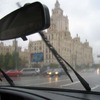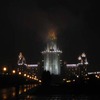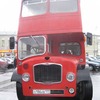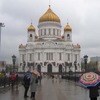Lonely Planet gives Moscow a bad name
Moscow officials have launched an attack on the Lonely Planet series for giving the city a bad name, claiming that guidebook is having an adverse effect on tourism - and Moscow's image as a whole.
Practically the first words in the 2nd Edition of the popular guide read "...Plagued by soaring prices, riddled with corruption, and spattered with beggars it [Moscow] also epitomises the seamier side of postcommunist Russia."
The Moscow Lonely Planet also has some fairly harsh words about prostitution, which it claims is widespread with prostitutes making rounds of the city's nightclubs, hotels and also the streets.
Nor does the negative press stop there, as the pious "travellers' bible" also includes warnings about the dangers of cheap vodka (...apparently it can make you ill), the regular propositioning of women by drunk tramps, entrenched racism, widespread corruption, and the almost inevitable occurrence of being harrassed by bribe-seeking police officers.
Material like this has led Moscow officials to state that the Lonely Planet guide "portrays the Russian capital as a gangster-infested Gotham and presents an image of the city that is at least 15 years out of date," (as Tom Parfitt recently reported in the Guardian).
So what is the fact of the matter? It's certainly true that the Lonely Planet has a tinge of American paranoia running through its seams, with many tourist warnings overblown and the unnecessary inclusion of 'urban myths' - horror stories that probably once happened to a friend of friend of a friend last millenium...
Factor in the LP's obsessive political correctness and whiter-than-white morals, and readers find themselves patronised with advice like abstinence is the only effective prevention of sexual diseases and that you shouldn't cross your legs in church (?), which add (unintentionally we're sure) to the feeling that in Moscow you are entering a danger zone.
But come on, is Lonely Planet really putting off people from coming to Moscow? In the book's defence it does state that today's Moscow is far safer than that of the early 1990s - and that the much-mentioned widespread corruption is unlikely to affect the man on the street.
Meanwhile the rest of its points are all to some extent valid, if overstated; prostitutes are rife, but generally just in upmarket clubs aimed at businessmen, whilst Russia's highlighted racism problem is if anything getting worse (NB. a black friend of ours recently returned from Moscow unscathed!) and the division between rich and poor has serious and very worrying potential repercussions for the city and country as a whole.
But if you were to ask this reporter what is stopping people coming to Moscow then the answer comes down to things much more basic. Unlike to most destinations in Eastern Europe, there are no cheap airlines flying here, and the need to get a visa (which only can be procured at great expense and little work, or little expense and a great deal of work) mean that city breaks to the likes of Berlin, Tallin, Riga and Ljubljana continue to be a lot more viable and attractive.
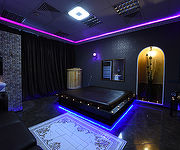 Podium
Podium

